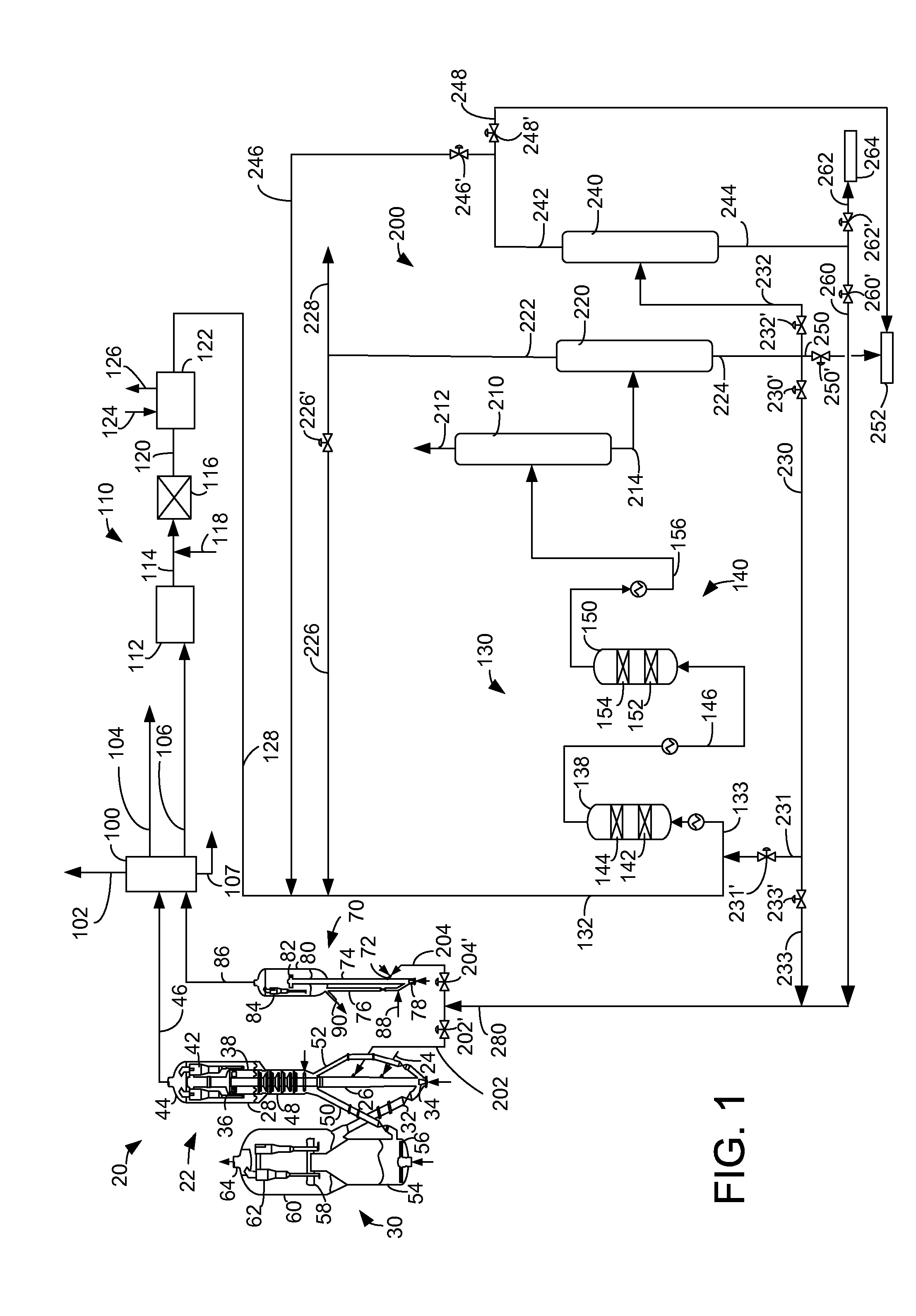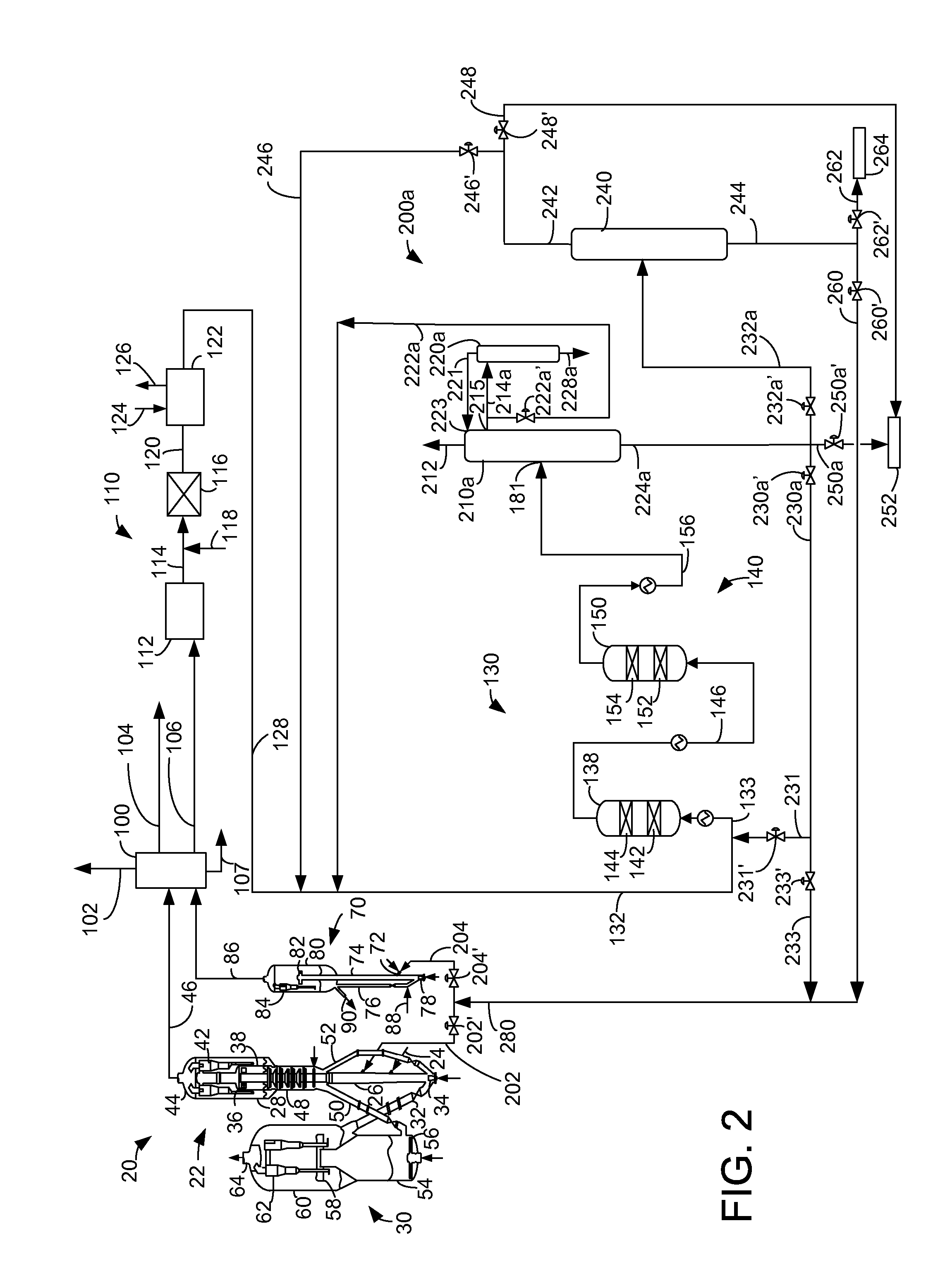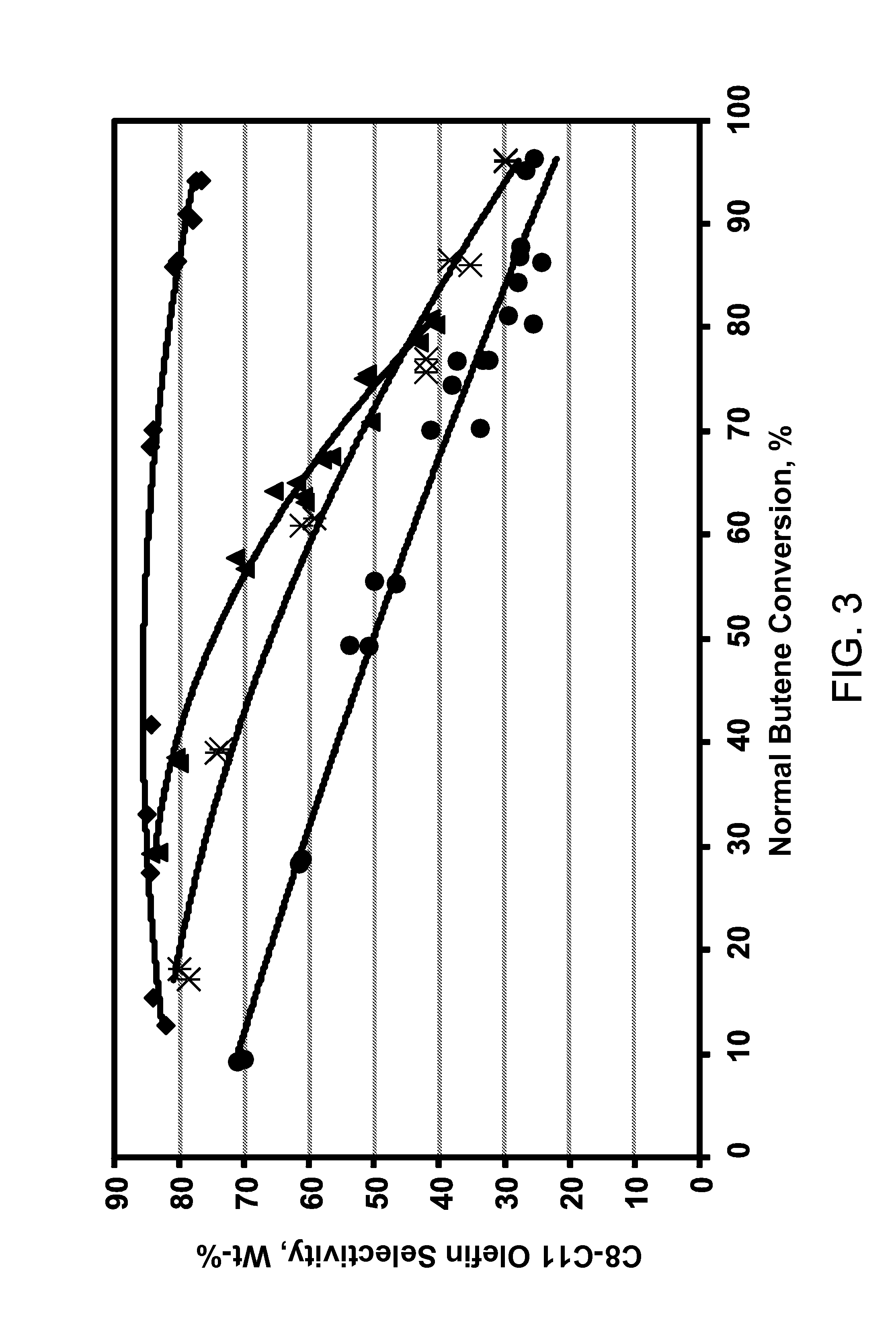Apparatus for fluid catalytic cracking oligomerate
- Summary
- Abstract
- Description
- Claims
- Application Information
AI Technical Summary
Benefits of technology
Problems solved by technology
Method used
Image
Examples
example 1
[0126]Feed 1 in Table 2 was contacted with four catalysts to determine their effectiveness in oligomerizing butenes.
TABLE 2ComponentFraction, wt %propylene0.1Iso-C4's70.04isobutylene7.71-butene5.72-butene (cis and trans)16.283-methyl-1-butene0.16acetone0.02Total100
[0127]Catalyst A is an MTT catalyst purchased from Zeolyst having a product code Z2K019E and extruded with alumina to be 25 wt % zeolite. Of MTT zeolite powder, 53.7 grams was combined with 2.0 grams Methocel and 208.3 grams Catapal B boehmite. These powders were mixed in a muller before a mixture of 18.2 g HNO3 and 133 grams distilled water was added to the powders. The composition was blended thoroughly in the muller to effect an extrudable dough of about 52% LOI. The dough then was extruded through a die plate to form cylindrical extrudates having a diameter of about 3.18 mm. The extrudates then were air dried, and calcined at a temperature of about 550° C. The MTT catalyst was not selectivated to neutralize surface aci...
example 2
[0137]A comprehensive two-dimensional gas chromatography with flame ionization detection (GCxGC-FID) method was developed and utilized to analyze the composition of light olefin oligomerization product streams. To develop the peak identifications, a GCxGC instrument equipped with a time of flight mass spectrometer (TOFMS) was used. Peak identifications were checked against a table of C8 olefin boiling points for consistency and by performing GC-FID of the olefinic sample with and without hydrogenation catalyst in the GC inlet to ensure that peaks assigned to a particular C8 mono-olefin moved to their respective saturated C8 isoparaffins. The identification of C8 paraffin isomers can be achieved using the UOP690 method. Careful matching of chromatographic conditions between GCxGC-FID and GCxGC-TOFMS allows one to translate identifications made from the TOFMS analysis to the GCxGC-FID for quantitative analysis. The following 48 compounds in the C8 region were identified and quantified...
example 3
[0143]Two types of feed were oligomerized over oligomerization catalyst A of Example 1, MTT zeolite. Feeds 1 and 2 contacted with catalyst A are shown in Table 7. Feed 1 is from Example 1.
TABLE 7Feed 1Feed 2ComponentFraction, wt %Fraction, wt %propylene0.10.1isobutane70.049.73isobutylene7.76.31-butene5.74.92-methyl-2-butene09.02-butene (cis & trans)16.289.83-met-1-butene0.160.16n-hexane060acetone0.020.01Total100100
[0144]In Feed 2, C5 olefin is made up of 2-methyl-2-butene and 3-methyl-1-butene which comprises 9.16 wt % of the reaction mixture representing about a third of the olefins in the feed. 3-methyl-1-butene is present in both feeds in small amounts. Propylene was present at less than 0.1 wt % in both feeds.
[0145]The reaction conditions were 6.2 MPa and a 1.5 WHSV. The maximum catalyst bed temperature was 220° C. Oligomerization achievements are shown in Table 8.
TABLE 8Feed 1Feed 2Inlet Temperature, ° C.192198C4 olefin conversion, %9899nC4 olefin conversion, %9799C5 olefin con...
PUM
 Login to View More
Login to View More Abstract
Description
Claims
Application Information
 Login to View More
Login to View More - R&D
- Intellectual Property
- Life Sciences
- Materials
- Tech Scout
- Unparalleled Data Quality
- Higher Quality Content
- 60% Fewer Hallucinations
Browse by: Latest US Patents, China's latest patents, Technical Efficacy Thesaurus, Application Domain, Technology Topic, Popular Technical Reports.
© 2025 PatSnap. All rights reserved.Legal|Privacy policy|Modern Slavery Act Transparency Statement|Sitemap|About US| Contact US: help@patsnap.com



